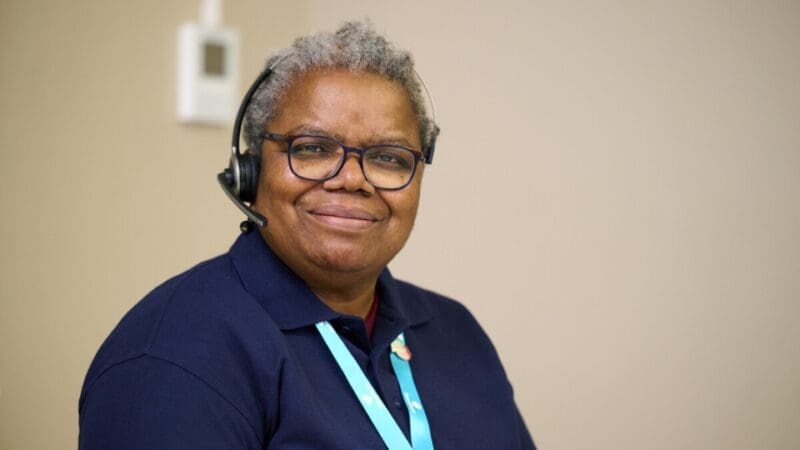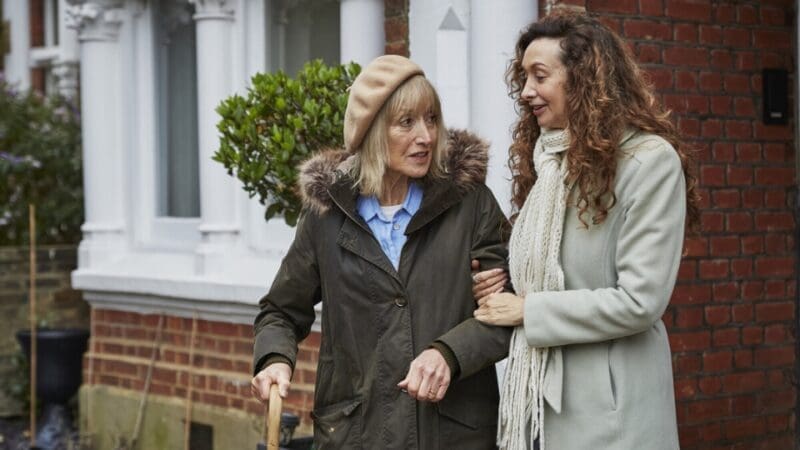
How we can support you
Whether you have a question that needs an immediate answer or need emotional support when life feels overwhelming, these are the ways our dementia specialist Admiral Nurses can support you.
Sam Ponting, an Admiral Nurse in Havering, has been exploring new and innovative ways to work with younger people with dementia and their families.
Young onset dementia (YOD) is defined as dementia diagnosed under the age of 65. It is also referred to as ‘early onset’ or ‘working age’ dementia. However this is an arbitrary age distinction which is becoming less relevant as increasingly services are realigned to focus on the person and the impact of the condition, rather than the age. Younger people with dementia can experience particular difficulties in obtaining a timely diagnosis and accessing suitable services. Younger people are more likely to experience stigma because dementia is so strongly associated with older age.
Sam Ponting, an Admiral Nurse in Havering, has been exploring new and innovative ways to work with younger people with dementia and their families. Back in April 2017 she and Libby Brown Occupational Therapist first noticed the lack of support for younger people with early onset dementia. This is due to the fact that most services for people with dementia are set up to cater for older age groups. However, according to the report ‘Dementia UK’ (2014) there are an estimated 42,325 people with young onset dementia in the UK (under 65 years of age). Although a minority group, they often present with a range of issues not usually found in the majority of dementia cases. For example, they may be more physically fit and active, be in work, have a partner who still works, have dependent children, have older parents to care for or heavy financial commitments.
Working in conjunction with staff from the NELFT (North East London Foundation Trust) Memory Service and the local hospice, with whom she already had strong links, Sam helped to set up an informal social evening for younger people with dementia and their families. The first meeting took considerable planning but the effort was definitely worthwhile. A total of 50 people attended (17 younger people with dementia and 33 family members). Families had the opportunity to share experiences and to consult professionals who were on hand to answer any questions. Lots of supportive conversations took place (and lots of cake was consumed!) and the feedback from attendees was very positive, especially around the sharing of concerns and struggles. As one carer noted, “meeting people going through the same thing is so comforting”.
Building on this successful event, a second evening was set up in July 2017 supported by staff from the local hospice, Memory Service and Dementia UK. Those attending (over 40) were again offered the opportunity to share experiences and to discuss concerns with professionals. The feedback was again very positive, especially discussions around the ‘younger people with dementia network’.
The latest meeting was held in November 2017, at which speakers appraised the group on a research project. Additionally, carers discussed a fundraising event which they have organised. Once again the session was well attended, with excellent feedback, particularly around sharing experiences and finding mutual support.
The next meeting is now being planned, with the possibility of holding it on a Saturday, when it is hoped even more people will be able to attend. There are also plans for a young person living with dementia to speak about their own experience.
Sam is very positive about the future of this group:
“The establishment of this group has only been possible through the active support of the Memory Service, Hospice team and Dementia UK. I am quite sure that by continuing to work together we can provide extremely valuable support to even more younger people with dementia and their families. One additional benefit is that it has given people the opportunity to appreciate the range of work undertaken by the Hospice, showing that it is not just a place where people go to die”

Whether you have a question that needs an immediate answer or need emotional support when life feels overwhelming, these are the ways our dementia specialist Admiral Nurses can support you.

Read personal stories from people living with a diagnosis, their family members and friends - as well as our dementia specialist Admiral Nurses.